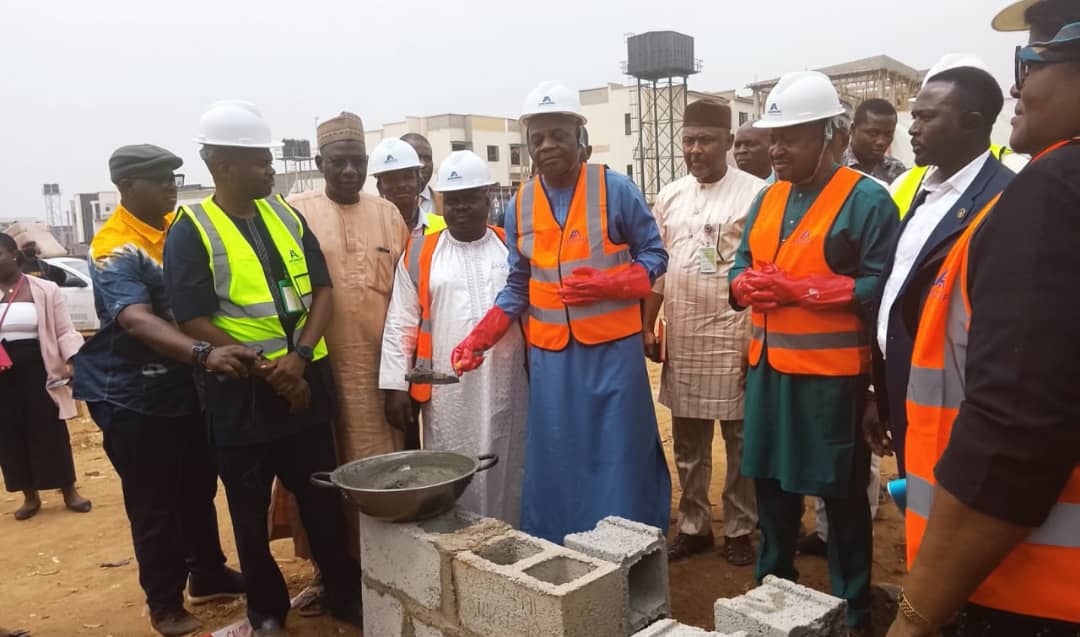News
China’s Tibet reaps fruitful results in glacier protection

By XuYuyao, People’s Daily
Mount Qomolangma, also known as Mount Everest in the West, is the world’s highest peak and one of the most famous snow-capped mountains. Thanks to enhanced efforts of ecological protection, Mount Qomolangma and its surrounding areas have seenbetter environmental conditionsinrecent years.
Recently, preliminary results were published on China’s second scientific research survey on the Qinghai-Tibet Plateau launched in May this year. According to the scientific research team, glaciers distributed on the plateau and surrounding mountains cover about 100,000 square kilometers, and snowfields about 300,000 square kilometers. The ice reserves in the area amounted to about 8,850 cubic kilometers, equivalent to about 8 trillion cubic meters of water.
Glaciers and snowfields are a vital part of the ecology on the Qinghai-Tibet Plateau. As a source or many rivers, they nurture the river system on the plateau and have a profound impact on the surrounding ecology.
Yao Tandong, leader of the scientific research team and academician of the Chinese Academy of Sciences, told People’s Daily that the total coverage of six lakes on the Qinghai-Tibet Plateau expanded by 20.2 percent between 1976 and 2010, including the Siling Lake and the Namtso. In particular, lakes replenished by glaciers saw a more obvious increase in water levels than those that are not replenished by glaciers.
He noted that the Siling Lake, once the second largest lake in China’s Tibet autonomous region, has now replaced the Namtso as the largest one.
Scientific researchers found the vegetation coverage in the Qomolangma National Nature Reserve has been on the rise, especially since 2010. The improvement in core zones and buffer zones is higher than that in experimental zones and peripheral areas, they said.
Global warming is a major reason causing the melting of glaciers, but human activities also contribute to such a phenomenon. Therefore, it’s not enough to only reduce the emission of greenhouse gases. Human activities must be curbed in glacier areas, too.
The PurogKangri glaciers in the Changtang National Nature Reserve, at 6,000-6,800 meters above sea level, cover an area of more than 400 square kilometers. It is the world’s largest glacier in low- and mid-latitude regions. Since 2018, the Changtang National Nature Reserve has suspended all tourism services, and as a result, grasslands near the glaciers are gradually recovering.
In addition, mountain climbing is also put under strict control in Tibet. According to a statement jointly released by the General Administration of Sport and the sports bureau of Tibet, climbers targeting peaks above 5,000 meters in Tibet autonomous region now have to apply for a permit at least a month in advance of their planned ascent.
Climbers are also being asked to abide by related laws and regulations to protect mountain environments. Organizers or climbers participating in illegal climbing will face administrative penalties, the statement said.
Technologies are contributing to the protection of glaciers, too. In 2020, a 30-meter-tall monitoring tower was erected on the KoKhyungGangri glaciers in the northern part of Lhasa, the capital of Tibet autonomous region. The monitoring will reveal the features and mechanisms of glaciers’ changes under different climates, and how meltwater runoff replenishes and contributes to the runoff from mountainous watersheds.
This time, the scientific research team established an automatic meteorological monitoring station and other monitoring devices near the monitoring tower.
Thanks to constant technological progress, scientists nowadays are able to carry out disaster warnings in a more efficient manner, thus better protecting the Qinghai-Tibet Plateau.
News
Audi: Trajectory of Success and Changing the Narrative

From a plethora of achievements and milestones—despite daunting challenges and shortcomings—the foresight, vision, and focused leadership of the present administration have transformed and repositioned the Service like never before in its history. In spite of limited funding and other grey areas yet to be addressed, the leadership has successfully turned around the narrative through deliberate rebranding efforts since assuming office.
Staff welfare remains paramount to the Commandant-General, who has consistently prioritized boosting esprit de corps and high personnel morale through the prompt payment of salaries, allowances, and other official entitlements as and when due. The leadership has also entrenched core values of integrity, intelligence-based security response systems, and professionalism across all operations. These measures have significantly reduced the activities of criminals, vandals, kidnappers, herdsmen, and illegal miners across the country.
In a press release signed by Mahmud Bello, Director of Media and Stakeholders Engagement of the Citizen Watch Advocacy Initiative (CWAI) in Kaduna State, the organization stated that the paramilitary agency has demonstrated genuine commitment to the interest of Nigerians through its open-door policy and robust engagement with its various publics. This approach has greatly reduced threats and disaster incidences nationwide through professional intelligence gathering, investigation, information sharing, manpower development, and strong collaboration with sister agencies—leading to remarkable improvement in disaster management as first responders.
Accordingly, transparency, accountability, and good governance have remained at the forefront of the present administration’s transformational philosophy. This has resulted in far-reaching reforms, including the regulation of private security companies, the introduction of Mining Marshals to secure strategic mining sites nationwide, containment of vandalism of critical national assets, reduction of oil theft in the Niger Delta region, and the assumption of VIP protocol protection responsibilities. These achievements surpass those of previous administrations and mark a significant milestone in the Service’s evolution.
CWAI authoritatively confirmed that the present management has introduced comprehensive institutional reforms that have repositioned the Service for greater productivity, efficiency, and effectiveness in delivering its mandate of safeguarding lives, property, and critical national assets—thereby reducing criminal activities and enhancing national security.
The Commandant-General, Professor Abubakar Ahmad Audi, reiterated that the reforms introduced align with his vision to upgrade the operational machinery of the Corps. He noted that the reorganization and revitalization of the training department are aimed at sharpening the skills and competencies of personnel to effectively address contemporary security challenges posed by hoodlums, bandits, kidnappers, and insurgents.
The establishment of the Mining Marshals and the Special Female Squad (SFS) are novel initiatives and the first of their kind in the history of the Corps. In response to the Federal Government’s Safe Schools Initiative, the NSCDC conducted audits and surveys of schools nationwide and developed a framework for proactive security measures to address the persistent attacks on educational institutions. These squads, like the Mining Marshals, are strengthening partnerships with local communities and stakeholders while prioritizing surveillance and monitoring to curb violent attacks and criminal activities.
The statement further emphasized that the Directorate of Legal Services has been reinvigorated and strengthened with enhanced prosecutorial competence, improving law enforcement and accountability. Similarly, the Anti-Vandal Unit has undergone major reforms and has been strategically deployed across the South-South geopolitical zone to curb pipeline vandalism, crude oil theft, and destruction of critical national assets. Over 2,500 suspects have been arrested since the beginning of the year for offences ranging from vandalism and attacks on national infrastructure to cattle rustling, banditry, attacks on farmers and farmlands, and illegal mining.
The Commandant-General attributed these successes to effective inter-agency collaboration, synergy, and partnerships, calling for comprehensive manpower development within the national security architecture.
Sports have also received significant attention under the present leadership, with officers and men of the NSCDC winning numerous laurels and trophies in various sporting engagements. All personnel, regardless of rank, have been provided with insurance cover against accidents, disability, or death in the course of duty. The Commandant-General views sports as a unifying platform that promotes wellness, camaraderie, information sharing, and mutual trust among paramilitary agencies.
CWAI further noted that the crackdown on illegal mining activities has saved the economy substantial revenue losses, while the destruction of over 450 illegal refineries has reduced oil theft. Additionally, the arrest of suspects and recovery of critical assets and railway materials valued at over ₦5 billion represent major milestones of the Service.
The organization therefore endorsed the change mantra of the Audi-led management and expressed confidence in the present leadership, noting that Nigerians are proud of its achievements despite prevailing challenges.
CWAI urged personnel to remain good ambassadors of the Corps—incorruptible and aligned with international best security practices wherever they serve. Nigerians were also encouraged to support the management in strengthening efforts against vandals and criminals nationwide.
The organization appealed to corporate bodies and public-spirited individuals to support President Bola Ahmed Tinubu’s Renewed Hope Agenda, particularly efforts to modernize the NSCDC through funding, partnerships, manpower development, capacity building, and the acquisition of modern security equipment.
Finally, CWAI emphasised the need for increased national budgetary allocation to the NSCDC in view of its critical role in the nation’s security architecture, including its added responsibility of VIP protocol protection. It also called for the entrenchment of a standard training curriculum to enhance career progression, effective supervision, and transparent regulation of Private Guard Companies across the country.
News
Senator Monguno Launches ₦250 Million Mega Empowerment Programme for 2,500 Constituents

The Senator representing Borno North Senatorial District, Chief Whip of the Senate and Vice Chairman of the Senate Committee on Appropriation, Distinguished Senator Mohammed Tahir Monguno, has unveiled a ₦250 million Mega Empowerment Programme designed to strengthen grassroots economic development through skills acquisition and financial support. The initiative, targeting 2,500 constituents, commenced with the disbursement of ₦125 million to 1,250 beneficiaries in the first batch, each receiving ₦100,000 as start-up capital. The second batch of 1,250 beneficiaries is scheduled to receive the remaining ₦125 million next week, ensuring equitable coverage across the constituency. Ahead of the disbursement, participants underwent a four-day intensive training in Tie and Dye, Cake Making, Tailoring, Entrepreneurship, Soap Making, Groundnut Cake Production, and Hairdressing. The programme deliberately focused on youths and women, equipping them with practical skills to foster self-reliance, productivity, and sustainable livelihoods. Prominent stakeholders, including Alhaji Kallah Maina Monguno, Hon. Mohammed (M-Gas), and APC Local Government Chairmen, commended Senator Monguno’s people-focused leadership. They described the initiative as timely and impactful, urging beneficiaries to apply the support responsibly as a strategic investment in human capital development. Speaking on behalf of the organisers, Mr. Suleiman reaffirmed their commitment to transparency and sustainability, advising participants to remain disciplined and dedicated to their chosen trades. The event drew wide attendance from political leaders, religious figures, and youth and women group representatives, underscoring its significance. Senator Monguno emphasized that the programme is not a one-off intervention but a long-term strategy to strengthen skills acquisition, promote entrepreneurship, and create sustainable sources of livelihood. He noted that the initiative complements Governor Babagana Zulum’s human capital development agenda and aligns with the broader vision of reducing unemployment and fostering inclusive economic growth in Borno State.
News
TETFund Begins Construction of Abuja Leadership Centre

The Tertiary Education Trust Fund (TETFund) has initiated the construction of the Abuja Leadership Centre of Excellence in Public Governance at Yakubu Gowon University, formerly known as the University of Abuja.
The Executive Secretary of TETFund, Sonny Echono, officially launched the project alongside the Vice-Chancellor of the University of Abuja, Professor Hakeem Babatunde Fawehinmi, and the Director of the Centre, Professor Philip Dahida, during a ceremony held on Tuesday in Jahi, Abuja.
During the event, Echono emphasized the goal of making the Abuja Leadership Centre “a stopping point for every leader visiting the country.” He described leadership as a crucial element of national development, noting that the success or failure of nations often hinges on the quality of leadership they cultivate.
He highlighted that effective leadership relies on a collective effort to utilize intellectual, human, and material resources, which, when efficiently coordinated, can drive national development aspirations.
Echono disclosed that TETFund plans to commission approximately 467 projects across tertiary institutions nationwide between now and October. “It is my prayer and hope that this centre will become a stopping point for every leader visiting our country. Its location in the nation’s capital is not accidental,” he remarked.
The TETFund boss expressed optimism that the Abuja Leadership Centre would develop into a world-class facility capable of nurturing leaders across various sectors of the economy and hosting globally recognized speeches, conventions, and declarations.
The TETFund Executive Secretary urged the contractors responsible for the project to meet expectations, emphasizing that the goal is to create a facility of international standard. He assured that TETFund would provide funding not only for construction but also for high-quality furniture and equipment.
According to him, the Centre is envisioned as more than just a conference hall or auditorium; it aims to be a top-tier leadership facility where visiting heads of state and their delegations will feel at home, comparable to similar facilities worldwide.
Echono praised the leadership of the University of Abuja and the Centre for the stability and direction they have brought to the institution, reaffirming TETFund’s commitment to collaborating in order to realize the vision of the university’s founders. He emphasized that, by its name and mandate, the university must continue to promote national unity, integration, and excellence, particularly in leadership and governance.
Regarding the commissioning of projects, he noted that it would not be feasible for the agency to inaugurate all projects directly, but at least 50 iconic projects would be selected across the states, with a minimum of two to three in each state.
Earlier, in his remarks, Vice-Chancellor Professor Fawehinmi stated that the groundbreaking ceremony marks a new phase in the university’s collaboration with TETFund. He noted that the Abuja Leadership Centre would function as a center of excellence for public governance and leadership, serving as a national hub for training future leaders who will significantly impact policy formulation and national development.
The Vice-Chancellor commended Echono’s leadership at TETFund, pointing out that under his guidance, the agency has transformed tertiary education not only through physical infrastructure but also in staff development, libraries, and other essential facilities.
He expressed confidence that TETFund would ensure the timely completion and proper furnishing of the Abuja Leadership Centre so that it can be fully utilized to achieve its objectives. Fawehinmi assured that the university would maximize the use of the facility, describing the project as a historic intervention that would be remembered for years to come.
“Today, we further strengthen our long-standing partnership, and we are delighted to announce that this Abuja Leadership Centre will be a center of excellence for public governance and leadership. It will serve as a national hub for training future leaders who will be involved in policy decisions for the development of their country. We extend our gratitude to you and your team, as we recognize the importance of nurturing our relationship into the future. Executive Secretary, you have done exceptionally well over the years. You have led one of the most impactful intervention agencies for tertiary education in the country, and we are very proud of your achievements,” he added.
The Director of the Abuja Leadership Centre, Professor Dahida, praised TETFund for commencing the construction of its permanent site, stating that the development signifies the realization of a vision rooted in the belief that leadership is the most vital resource for good governance, institutional excellence, and national development.
Dahida revealed that the Centre was established to serve as a hub for thought leadership, capacity development, policy dialogue, and ethical reorientation, not only for the University of Abuja but for Nigeria and the wider African region. Adding that the Centre is also designed to bridge the gap between theory and practice, academia and policy, and leadership ideals with real-world application.
He charged the contractor to execute the project strictly in line with the approved specifications, timelines, and agreed standards. Stressing that the facility must reflect world-class quality, professionalism, and durability, while public funds entrusted to this project must translate into tangible value, accountability, and excellence.
“Today marks far more than the commencement of a construction project. It signifies the physical birth of a vision, one rooted in the conviction that leadership is the most critical resource for good governance, institutional excellence, and national development.
“The Abuja Leadership Centre, TETFund Centre of excellence, was established to serve as a hub for thought leadership, capacity development, policy dialogue, and ethical reorientation, not only for the University of Abuja but for Nigeria and the wider African region.
“At a time when nations are confronted with complex governance challenges, evolving public expectations, and rapid socio-economic change, the need for principled, competent, and forward-looking leaders has never been more urgent.
“I wish to express our deepest and most sincere appreciation to the Tertiary Education Trust Fund (TETFund), and in particular to the Executive Secretary- Dr. Sunday Echono, for the approval and support that made this project possible.
“I also wish to specially commend the Vice-Chancellor of the University of Abuja, Prof. Hakeem Babatunde for his exemplary leadership, swift action, and unwavering support. From assumption of office, the Vice-Chancellor has demonstrated uncommon commitment to institutional growth and innovation.
“As we formally break ground today, I take this opportunity to enjoin the contractor to execute this project strictly in line with the approved specifications, timelines, and agreed standards. This facility must reflect world-class quality, professionalism, and durability. Public funds entrusted to this project must translate into tangible value, accountability, and excellence,” Dahida warned.
-

 Uncategorized5 years ago
Uncategorized5 years agoFG, states urged to harness flooding for ranching, others with technology – Agbaje
-

 Headlines10 years ago
Headlines10 years agoBreaking: EFCC seals Borno House of Assembly, as Hon members take to their heels
-

 News12 years ago
News12 years agoNigeria Security Operatives Stage Manhunt For Homosexual Perpetrator
-

 News9 years ago
News9 years agoHow 21-year-old Girl fled community over accusation of lesbianism
-

 News10 years ago
News10 years agoYobe Gov Moves Against Deputy
-

 Opinion7 years ago
Opinion7 years ago7 signs she has friend zoned you
-
Technology4 years ago
Online job placement company headhunts women
-

 Headlines10 years ago
Headlines10 years agoBorno Dep Gov Abducts Another Church Leader





